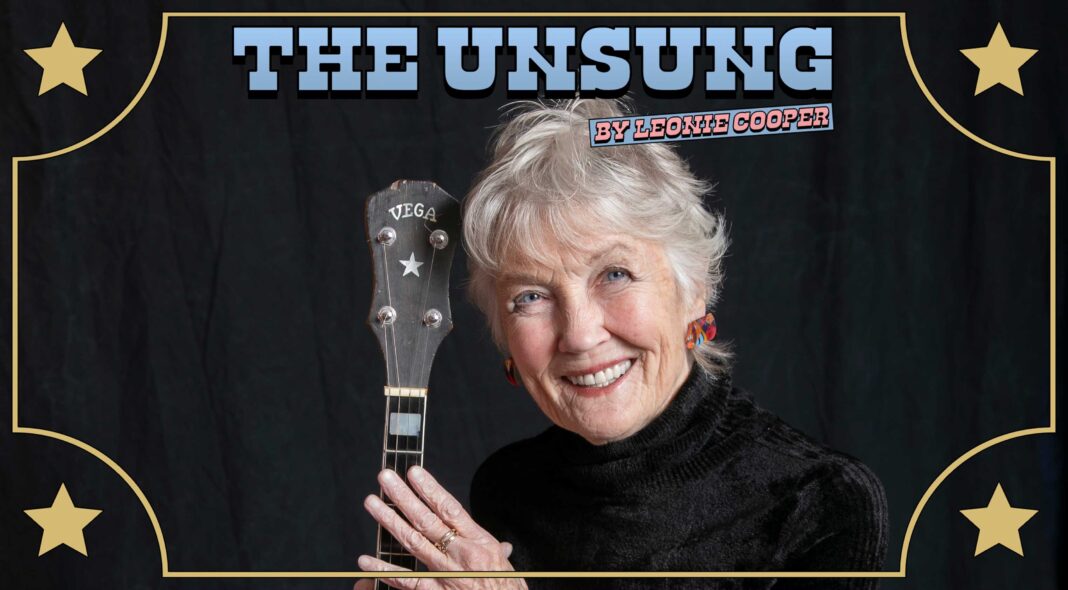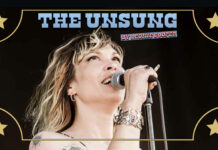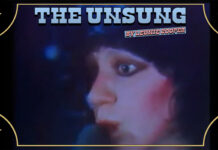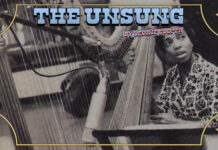Though it’s hard not to be dazzled by the talent that’s long surrounded Peggy Seeger – her mother Ruth Crawford was a ground-breaking avant-garde composer, her half-brother the American folk hero Pete Seeger, her partner of 30 years his British equivalent Ewan MacColl and her step-daughter the incomparable Kirsty MacColl – she has long shined just as fiercely.
Born in 1935 in New York, Peggy moved to Europe in her early 20s, blacklisted by the CIA after touring communist Russia and China. She finally settled in London, after being invited by archivist Alan Lomax and she soon met and fell in love with Ewan MacColl, the pair playing together as well as mentoring young folk singers and working on radio shows together.
Now living in Oxfordshire and at 85 years old, the musician, activist and educator is currently readying the release of ‘First Farewell’, an album which she says will “probably” be her final record, but she’s certainly not making any promises, thank goodness. Written and recorded with yet more members of her ultra-talented family, her two sons and daughter-in-law, it’s an album that leans greatly on her early outings as a pianist, rather than as the banjo-plucking folk revivalist who first made her name in the 1950s.
On it her voice remains strident and pure, full of the stories and life that peppered her eminently readable 2017 memoir, First Time Ever, a book named after ‘The First Time Ever I Saw Your Face’, the iconic ballad written by Ewan for Peggy and covered endlessly. Yet in tracks like ‘The Invisible Woman’ there’s a simmering rage directed to the “unseen” life of women past a certain age, and who are erased from public consciousness. “Why should I feel so much less than I am?/ There’s so much more of me now,” she asks, not unreasonably.
It’s a song that stems from a lifetime of activism and of knowing that music can be part of so much more, that it can signify change and hope, as well as being something beautiful which makes long, painful days seem a little shorter, a little lighter.
Peggy Seeger’s songs have always been political, whether they were supporting the women campaigning against nuclear armament in Greenham Common in the 1980s, reproductive rights in the 1970s or letting every girl know that she could do whatever the hell she wants when she grows up on the perky ‘I’m Gonna Be an Engineer’.
In a recent interview with PRS, Peggy spoke about her current concerns for the environment, and maintained that feminism too was as core as ever to her beliefs. “When you really get involved with ecology, you realise that we live in a patriarchy,” she explained. “I began to realise that the earth will only survive if women run it.” It’s a point she’s been making for years now, linking the destruction of the Earth with the men who’ve been running – and ruining – it.
Speaking to The Big Issue in 2019, Peggy was passionate when talking about the conclusions she came to in the late 1980s: “I realised how much men had destroyed the Earth. Women look after things. We don’t take our sons out and dress them as soldiers. It’s men who are violent. It’s men who torture. It’s men who rape, and kill and go into schoolyards with guns.” Such is her commitment to looking after the planet and not taking unnecessary flights, it’s now been years since she’s seen her current life partner Irene Pyper-Scott, who lives in New Zealand. If it’s dedication to the cause you’re after, then Peggy Seeger’s your woman.
Hear Peggy Seeger’s influence in the music of:
Cat Power
Kimya Dawson
Regina Spektor
READ MORE: The Unsung is a weekly series. Get to know the stories of more musical heroes.
Like what we do? Support The Forty-Five’s original editorial with a monthly Patreon subscription. It gets you early access to our Cover Story and lots of other goodies – and crucially, helps fund our writers and photographers.
Become a Patron!






